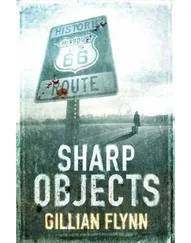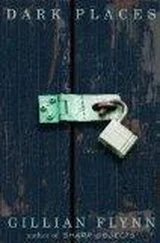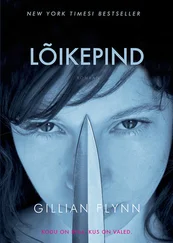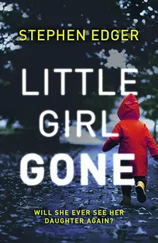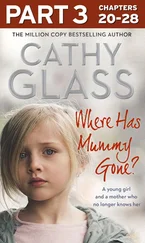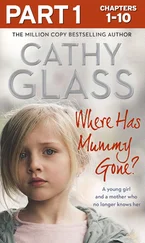I could always turn myself off like a light. I’m going to sleep , I’d say, my hands in prayer position against my cheek, Zzzzzz , the deep sleep of a NyQuiled child—while my insomniac wife fussed in bed next to me. Last night, though, I felt like Amy, my brain still going, my body on edge. I was, most of the time, a man who was literally comfortable in his own skin. Amy and I would sit on the couch to watch TV, and I’d turn to melted wax, my wife twitching and shifting constantly next to me. I asked her once if she might have restless leg syndrome—an ad for the disease was running, the actors’ faces all furrowed in distress as they shook their calves and rubbed their thighs—and Amy said, I have restless everything syndrome .
I watched the ceiling of the hotel room turn gray then pink then yellow and finally pulled myself up to see the sun blaring right at me, across the river, again, a solar third degree. Then the names popped in my head—bing! Hilary Handy. Such an adorable name to be accused of such disturbing acts. Desi Collings, a former obsessive who lived an hour away. I had claimed them both as mine. It is a do-it-yourself era: health care, real estate, police investigation. Go online and fucking figure it out for yourself because everyone’s overworked and understaffed. I was a journalist . I spent over ten years interviewing people for a living and getting them to reveal themselves. I was up to the task, and Marybeth and Rand believed so too. I was thankful they let me know I was still in their trust, the husband under a wispy cloud of suspicion. Or do I fool myself to use the word wispy ?
The Days Inn had donated an underused ballroom to serve as the Find Amy Dunne headquarters. It was unseemly—a place of brown stains and canned smells—but just after dawn, Marybeth set about pygmalioning it, vacuuming and sani-wiping, arranging bulletin boards and phone banks, hanging a large head shot of Amy on one wall. The poster—with Amy’s cool, confident gaze, those eyes that followed you—looked like something from a presidential campaign. In fact, by the time Marybeth was done, the whole room buzzed with efficiency—the urgent hopefulness of a seriously underdog politician with a lot of true believers refusing to give up.
Just after ten A.M., Boney arrived, talking into her cell phone. She patted me on the shoulder and began fiddling with a printer. The volunteers arrived in bunches: Go and a half dozen of our late mother’s friends. Five fortysomething women, all in capri pants, like they were rehearsing a dance show: two of them—slender and blond and tanned—vying for the lead, the others cheerfully resigned to second string. A group of loudmouthed white-haired old ladies, each trying to talk over the next, a few of them texting, the kind of elderly people who have a baffling amount of energy, so much youthful vigor you had to wonder if they were trying to rub it in. Only one man showed up, a good-looking guy about my age, well dressed, alone, failing to realize that his presence could use some explaining. I watched Loner Guy as he sniffed around the pastries, sneaking glances at the poster of Amy.
Boney finished setting up the printer, grabbed a branny-looking muffin, and came to stand by me.
“Do you guys keep an eye on everyone who reports to volunteer?” I asked. “I mean, in case it’s someone—”
“Someone who seems to have a suspicious amount of interest? Absolutely.” She broke off the edges of the muffin and popped them in her mouth. She dropped her voice. “But to tell the truth, serial killers watch the same TV shows we do. They know that we know they like to—”
“Insert themselves into the investigation.”
“That’s it, yup.” She nodded. “So they’re more careful about that kind of thing now. But yeah, we sift through all the kinda-weirdos to make sure they’re just, you know, kinda-weirdos.”
I raised an eyebrow.
“Like, Gilpin and I were lead detectives on the Kayla Holman case few years back. Kayla Holman?”
I shook my head: no bell.
“Anyway, you’ll find some ghouls get attracted to stuff like this. And watch out for those two—” Boney pointed toward the two pretty fortysomething women. “Because they look like the type. To get a little too interested in consoling the worried husband.”
“Oh, come on—”
“You’d be surprised. Handsome guy like you. It happens.”
Just then one of the women, the blonder and tanner, looked over at us, made eye contact, and smiled the gentlest, shyest smile at me, then ducked her head like a cat waiting to be petted.
“She’ll work hard, though; she’ll be Little Miss Involved,” Boney said. “So that’s good.”
“How’d the Kayla Holman case turn out?” I asked.
She shook her head: no .
Four more women filed in, passing a bottle of sunblock among themselves, slathering it on bare arms and shoulders and noses. The room smelled like coconuts.
“By the way, Nick,” Boney said. “Remember when I asked if Amy had friends in town—what about Noelle Hawthorne? You didn’t mention her. She left us two messages.”
I gave her a blank stare.
“Noelle in your complex? Mother of triplets?”
“No, they aren’t friends.”
“Oh, funny. She definitely seems to think they are.”
“That happens to Amy a lot,” I said. “She talks to people once, and they latch on. It’s creepy.”
“That’s what her parents said.”
I debated asking Boney directly about Hilary Handy and Desi Collings. Then I decided not to; I’d look better if I were the one leading the charge. I wanted Rand and Marybeth to see me in action-hero mode. I couldn’t shake the look Marybeth had given me: The police definitely seem to think it’s … close to home .
“People think they know her because they read the books growing up,” I said.
“I can see that,” Boney said, nodding. “People want to believe they know other people. Parents want to believe they know their kids. Wives want to believe they know their husbands.”
Another hour and the volunteer center began feeling like a family picnic. A few of my old girlfriends dropped by to say hello, introduce their kids. One of my mom’s best friends, Vicky, came by with three of her granddaughters, bashful tweens all in pink.
Grandkids. My mom had talked about grandkids a lot, as if it were doubtlessly going to happen—whenever she bought a new piece of furniture, she’d explain she favored that particular style because “it’ll work for when there’s grandkids.” She wanted to live to see some grandkids. All her friends had some to spare. Amy and I once had my mom and Go over for dinner to mark The Bar’s biggest week ever. I’d announced that we had reason to celebrate, and Mom had leaped from her seat, burst into tears, and hugged Amy, who also began weeping, murmuring from beneath my mom’s smothering nuzzle, “He’s talking about The Bar, he’s just talking about The Bar.” And then my mom tried hard to pretend she was just as excited about that. “ Plenty of time for babies,” she’d said in her most consoling voice, a voice that just made Amy start to cry again. Which was strange, since Amy had decided she didn’t want kids, and she’d reiterated this fact several times, but the tears gave me a perverse wedge of hope that maybe she was changing her mind. Because there wasn’t really plenty of time. Amy was thirty-seven when we moved to Carthage. She’d be thirty-nine in October.
And then I thought: We’ll have to throw some fake birthday party or something if this is still going on. We’ll have to mark it somehow, some ceremony, for the volunteers, the media—something to revive attention. I’ll have to pretend to be hopeful .
Читать дальше

